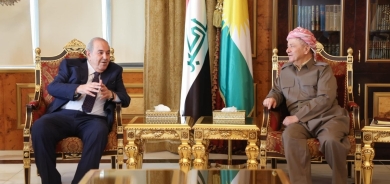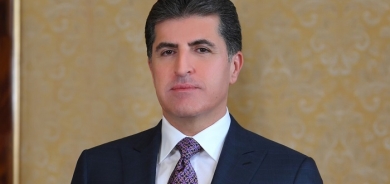Soner Cagaptay: Voters [in Turkey] chose security over personal freedoms
November 18, 2015
Exclusive Interviews
![Soner Cagaptay: Voters [in Turkey] chose security over personal freedoms](https://gulanmedia.com/public/old_images/t_dimana/kacharrrr.jpg )
Soner Cagaptay is the Beyer Family fellow and director of the Turkish Research Program at The Washington Institute. He has written extensively on U.S.-Turkish relations, Turkish domestic politics, and Turkish nationalism, publishing in scholarly journals and major international print media, including the Wall Street Journal, Washington Post, New York Times, Jane's Defense Weekly, Foreign Affairs, Atlantic, New Republic, and Newsweek Türkiye.Cagaptay: The overwhelming Justice and Development Party (AKP) victory in Turkey's November 1 parliamentary re-vote came as a surprise, since no polls had even come close to predicting such radical results. Two factors help explain the outcome.
First, five months of political and economic instability followed the June 7 elections, which produced a hung parliament with no effective government. As voters witnessed an economic slowdown, a tumbling lira, increased violence by the Kurdistan Workers Party (PKK), and dramatic Islamic State (IS) attacks in Ankara that killed 102 people, many of them shifted to the AKP, viewing it as the faction most likely to usher in a single-party government and therefore a return to stability. President Recep Tayyip Erdogan, still the party's de facto head, presented himself as the "strongman who can protect you," and the strategy worked -- voters chose security over personal freedoms. Ironically, two very different constituencies flocked together to vote for the AKP in droves: Turkish nationalist voters, who feared the resurgence of PKK terrorist attacks, and Kurdish voters, who feared the return of full-scale war against the group in their local communities.
Second, since the right wing is the dominant pillar in Turkish politics, the AKP took advantage of right-left polarization to further consolidate its votes. After the IS bombings in Ankara, the left -- led by Selahattin Demirtas, co-chair of Peoples' Democratic Party (HDP) -- blamed the government for the attack, while the government blamed the left. This deepened the country's polarization, leading some right-wing Nationalist Action Party (MHP) supporters to switch their ballot in support of the strongest right-wing party, namely the AKP.
Gulan: With regard to the foreign policies pursued by the AKP party, especially with it is neighboring countries, some critics say that the AKP part government has gone from “zero problems with neighbors” to “zero neighbors without problems”, do you expect that this party will recalibrate and reassess it is foreign policy after this election? With respect to the Kurdish issue in Turkey, the past struggles and strives demonstrated that the military solution has not produces the desired results, not only that, but it has been counterproductive and exacerbated the problems, and in recent months we witnessed the collapse of peace process, do you think that Turkey needs to resume the peace initiative instead of launching more airstrikes and military operations?
Cagaptay: AKP’s resurgence in gaining legislative majority will ease popular scrutiny of the government’s Syria policy, including Turkish support of anti-Assad rebels. At the same time, however, Russia’s entry into the Syrian war will force Ankara to rethink its Syria policy. Russia’s active participation in the Syrian theatre will force Ankara to be more circumspect in its support to the rebels. A nightmare scenario could occur whereby Turkey-backed rebels shoot down a Russian plane or helicopter in northwestern Syria, incurring Russian President Vladimir Putin’s anger.
Ankara has nearly a dozen neighbors, including its maritime neighbors across the Black Sea and the Mediterranean. Emboldened by its phenomenal economic growth and the Davutoglu-Erdogan foreign policy doctrine of trying to become a regional power, Ankara appears willing to square-off against any of them; to date, Erdogan has publicly chided the leaders of Syria, Iran, and Iraq. In fact, none of the country's neighbors can feel safe from Ankara's wrath -- with the exception of Russia, that is.
Turkey as a nation suffers from a deep-rooted, historic reluctance to confront the Russians. At its foundation, the humming Turkish economy is woefully dependent on Russian energy exports: more than half of Turkey's natural gas consumption comes from Russia. Consequently, Turkey is unlikely to confront Moscow even when Russia undermines Turkey's interests, such as in Syria.
Historically, Turkey has good reasons to fear Russia. Between 1568, when the Ottomans and Russians first clashed, to the end of the Russian Empire in 1917, the Turks and Russians fought at least 17 wars. In each encounter, Russia was the instigator and the victor.
Furthermore, Russia has recently become Turkey’s neighbor in Crimea to the north and Antakya to the south. More than before, Erdogan might be eager to accept an international settlement on the outcome of the Syrian war, including one that envisions Assad staying as the country’s leader during a transition period.
Russia’s entry into the Syrian war will also push Turkey closer to the NATO alliance and the United States. This will result in closer U.S.-Turkish cooperation against IS in Syria and Iraq. On the Kurdish front, Turkey will maintain good ties with the Kurdistan Regional Government (KRG) led by Masoud Barzani. On the other hand, Turkish relations with the Syrian Kurds, namely the Party for Democratic Unity (PYD), a PKK franchise, will be indexed to Erdogan’s PKK policy at home. Should Erdogan bring Ocalan and the PKK back into peace talks, he could, therefore, enjoy good ties most Kurds in Iraq, Turkey and Syria. Erdogan’s cooperation with the U.S. against IS and Turkey’s improved policy towards its Kurdish allies would help defuse at least some of the tensions in ties with Washington over the status of Turkish democracy.















